Translations 677
Cuba Recovered and Open
By Manuel E. Yepe Translated and edited by Walter Lippmann. USA Today reported on Sept. 17 that the US government was providing humanitarian aid to numerous Caribbean islands devastated by Hurricane Irma. Cuba, located just 90 miles off the coast of Florida – was not among them. When Hurricane Katrina hit New Orleans in 2005, Cuba was the first nation to offer aid. The island prepared thousands of volunteers and huge amounts of emergency equipment and supplies to assist the victims in the affected regions with all the expenses incurred by Cuba. Even on that occasion, Havana organized a permanent aid brigade to send to to countries affected by natural disasters that was named after a US citizen, Henry Reeve (1850-1876), who fought in an outstanding way in the Cuban independence ranks against Spanish colonialism, and who rose to the rank of Brigadier General. The US government of George W. Bush rejected the magnanimous Cuban aid offer, in spite of the enormous humanitarian catastrophe that was unfolding in Louisiana at the time. Katrina caused damage to the city of New Orleans, but it did not devastate it. Shortly afterwards, the Pontchartrain lake dams and several canals were broken. A toxic broth of contaminated water flooded the streets, as well as thousands of homes and beyond the second floor of tall buildings. Tens of thousands of people, almost all of them black and poor, had to fight for survival in the worst conditions of official abandonment. An estimated 300,000 families were made homeless. Nor was the offer of Cuban aid accepted at that time. At the moment, although Cuba is recovering from the serious damage caused by Hurricane Irma, it has not hesitated to give aid to neighboring islands that have suffered a misfortune similar to its own. Hundreds of professionals, with their assistants and medical supplies, have been sent by Havana in support their Caribbean neighbors. It is known that there are now hundreds of millions of dollars worth of food, medicine, and building materials being stored in the US military base that Washington illegally occupied more than a century ago, on the shores of Guantanamo Bay, on Cuban territory, in the easternmost part of Cuba. (This also includes the concentration camp whose inmates have no rights or trial as prisoners war). But it is also known that the US military base has not shared a single bottle of potable water with the Cuban residents affected by the hurricane outside the perimeter fencing at the base. Among other nations, they are providing assistance to Cuba, Argentina, Bolivia, Canada, Colombia, Costa Rica, China, Ecuador, El Salvador, Spain, Mexico, Nicaragua, Panama, Dominican Republic, Russia, Uruguay, Venezuela and Vietnam, as well as some dependencies from the ONU. In contrast, the State Department has issued a warning against travel to Cuba and advises the Americans in that regard. Meanwhile, millions of Cuban volunteers have cleared the tracks that provide the most evidence of the destructive passage of Hurricane Irma. Tourists from the most diverse countries are already going massively to the island. By denying Cubans aid, and discouraging its citizens’ travel to Cuba, Washington is once again using the occurrence of a humanitarian disaster to punish Cubans for refusing to accept US meddling in their internal affairs. However, as the Canadian tour operator “Cuba Explorer”, which has been based for years in Havana, states in a message to its clients, “Americans are preparing to visit Cuba in large numbers in the coming months, aware that social tourism is a form humanitarian and economic aid. The travelers want to keep alive the new spirit of cooperation between the United States and Cuba that began during the Presidency of Barack Obama. “Cubans are showing their disposition and their desire to welcome and warmly welcome their arrival to the island to their American guests,” said the aforementioned US tour operator, based on his own experiences and expectations. September 18, 2017.
Por Manuel E. Yepe Exclusivo para el diario POR ESTO! de Mérida, México. El diario USA Today informó el 17 de septiembre que el gobierno de Estados Unidos estaba dando ayuda humanitaria a numerosas islas del Caribe devastadas por el huracán Irma. Cuba, situada a tan solo 90 millas de las costas de la Florida- no estaba entre ellas. Cuando el huracán Katrina golpeó a Nueva Orleans en 2005, Cuba fue la primera nación en ofrecer ayuda. La isla preparó miles de voluntarios y enormes cantidades de equipos y suministros de emergencia para ayudar a las víctimas en las regiones afectadas con todos los gastos sufragados por Cuba. Incluso en esa ocasión La Habana organizó una brigada permanente de ayuda a países afectados por desastres naturales que nombró Henry Reed (1850—1876), en honor a un ciudadano estadounidense que combatió de manera sobresaliente en las filas independentistas cubanas contra el colonialismo español, en las que alcanzó el grado de Brigadier General. El gobierno estadounidense de George W. Bush rechazó la magnánima oferta cubana de ayuda, a pesar de la enorme catástrofe humanitaria que se desplegaba en el estado de Luisiana en aquel momento. Katrina causó daños a la ciudad de Nueva Orleáns, pero no la devastó. Poco después, cuando los diques del lago Pontchartrain y varios canales se reventaron, un caldo tóxico de agua contaminada inundó las calles, así como miles de casas y hasta más allá del segundo piso de los edificios altos. Decenas de miles de personas, casi todas negras y pobres, debieron luchar por la supervivencia en las peores condiciones de abandono oficial. Se calcula que 300,000 familias quedaron sin techo. Tampoco fue aceptada entonces la oferta de ayuda cubana. En estos momentos, pese a que Cuba se está recuperando de los graves perjuicios que le causara el huracán Irma, no ha vacilado en prestar ayuda a las islas vecinas que han sufrido una desgracia semejante a la propia. Cientos de profesionales, con sus asistentes y suministros médicos, han sido enviados por La Habana en apoyo a sus vecinos del Caribe. Se conoce que en la base militar estadounidense que ilegalmente ocupa hace más de un siglo un espacio en la ribera de la bahía de Guantánamo, en territorio cubano, en la parte más oriental de Cuba (así como en el campo de concentración de sus prisioneros de guerra sin derecho a juicio que allí existen), hay actualmente alimentos, medicinas y materiales de construcción valorados en cientos de millones de dólares. Pero se sabe, igualmente, que la base militar estadounidense no ha compartido ni una sola botella de agua potable con los cubanos residentes afectados por el huracán fuera del vallado perimetral de la base. Entre otras naciones, están proporcionando ayuda a Cuba Argentina, Bolivia, Canadá, Colombia, Costa Rica, China, Ecuador, El Salvador, España, México, Nicaragua, Panamá, República Dominicana, Rusia, Uruguay, Venezuela y Vietnam, así como algunas dependencias de la ONU. En contraste, el Departamento de Estado ha dictado una advertencia contra los viajes a Cuba y asesora en ese sentido a los estadounidenses. Mientras tanto, millones de voluntarios cubanos han limpiado las huellas que más evidencian el destructivo paso de huracán Irma. Turistas de los más diversos países están acudiendo masivamente ya a la isla. Al negarle ayuda a los cubanos y desalentar los viajes a Cuba de sus ciudadanos, Washington está utilizando una vez más la ocurrencia de un desastre humanitario para castigar a los cubanos por negarse a aceptar la intromisión de Estados Unidos en sus asuntos internos. Sin embargo, como manifiesta en mensaje a sus clientes el turoperador canadiense “Cuba Explorer”, basado hace años en La Habana, “los estadounidenses se preparan para visitar Cuba en gran número en los próximos meses, conscientes de que el turismo social es una forma humanitaria y económica de ayuda. Los viajeros quieren mantener vivo el nuevo espíritu de cooperación entre Estados Unidos y Cuba que se inició durante la Presidencia de Barack Obama”. “Los cubanos están dando muestras de su disposición y sus deseos de dar la bienvenida y abrazar calurosamente a su llegada a la isla a sus invitados estadounidenses”, expresó el antes citado turoperador norteamericano, a partir de sus propias vivencias y expectativas. Septiembre 18 de 2017.
Cuba Recovered and Open to the World

http://manuelyepe.wordpress.com/
Exclusive to the daily POR ESTO! of Mérida, Mexico.CUBA SE RECUPERA Y SIGUE ABIERTA AL MUNDO

http://manuelyepe.wordpress.com/
Hurricane Irma’s Effects on Cuba
Hurricane Irma’s Effects on Cuba
By Néstor García Iturbe
Translated and Edited by Walter Lippmann.
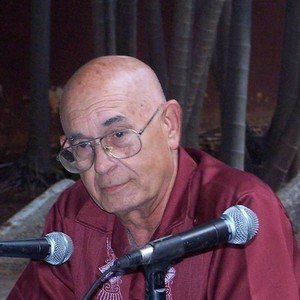
DEAR READERS:
Some compañeros from other countries have written to me worried about Hurricane Irma and its consequences. That is why I make this brief chronicle. It would be unnecessary for those who live in Cuba and surely they would have much to contribute from their personal experiences.
AFTER PREPARATION TO RECEIVE IRMA AND ITS ARRIVAL IN CUBA, THEY CAN UNDERSTAND THAT ALL LIFE HAS BEEN ALTERED.
This hurricane crossed several provinces of the country along the north coast, destroying a good part of our tourist facilities and beaches, in addition to seriously affecting many cities.
The size of the hurricane was such that when it passed through a place it affected an area of more than three hundred kilometers. The closest to the eye of the hurricane with winds of about 250 kilometers per hour, in addition to the rains, those that were far from the center of the hurricane were also affected by winds of 80 kilometers in some cases and 150 in others (approximately).
Virtually the entire country ran out of electricity, with heavy flooding, disrupted roads, telephones. The news could be heard on the radio, the one with a portable radio, because although the television was on the air, no one could receive the signal because of the lack of electricity.
Although Civil Defense properly and timely warned about the dangers and the need to be safe, people were placed at safe locations to shelter, accidents occurred that cost the lives of ten Cubans.
Losses were also suffered in agriculture, industries, housing, schools, hospitals and others.
For those who have visited Cuba and have been in Havana, I can tell you that the water the sea advanced about 800 to 900 meters from the coast, above the seawall, in some places reached the height of 1.5 meters (as in the neighborhood where alive). You can understand that it destroys mobile homes, electrical equipment, shops, streets. trees, cars, electric and telephone lines, flooding of tunnels, garages and everything that is usually the basement of a building, where people often live.
After the hurricane, work began on the restoration of normality, and although much of the services (water, electricity, gas, telephone, television, radio) have yet to be restored, they have been reestablished in almost all of the country. On Monday the school year should be restarted at all levels, people who had problems with their home will continue in shelters, but work is underway on many of these, as well as factories and power plants. Most of the streets are passable and almost all the trees that were demolished were eliminated.
We still have some work to do, we have solved a good part but there are always issues that we must resolve to bring the country and its citizens back to the situation in which they were before Irene.
We are grateful for the solidarity shown by many people who are friends of Cuba, the help that is coming to us from some countries and above all we are grateful to have so many friends, like you, who care about us.
Many hurricanes would have to pass so that the Revolution would not go ahead. A hurricane affects us, but it does not stop us.S
Thank you all,
Néstor
Hurricanes and the Blockade Against Cuba
Hurricanes and the Blockade Against Cuba

By Manuel E. Yepe
http://manuelyepe.wordpress.com/
Exclusive to the daily POR ESTO! of Mérida, Mexico.
Translated and edited by Walter Lippmann.
Although the blockade of Cuba officially began on February 7, 1962, in practice it began in 1959, barely after the triumph of the popular revolution against the pro-American dictatorship of Fulgencio Batista. The recent tragedy that Hurricane Irma has meant for Cuba and several other countries in the Caribbean reminded me of a discussion I had exactly ten years ago with an American friend visiting Cuba. He maintained that Fidel Castro should be grateful to the US government for the blockade it had imposed on Cuba for half a century.
In that American friend’s opinion, it would have been extremely difficult, almost impossible, for Cubans to maintain the unity in action they have shown for the achievement of their great social, cultural, educational, scientific and economic advances, “had there not been the ferocious and stupid hostility against the island” of its powerful northern neighbor.
For this reason, he speculated, the Cuban government has acted very cleverly by not doing everything in its power to get the United States to suspend the economic blockade and normalize its relations with the island.
I argued against such speculation. I reminded him of the staunch position of the Cuban government against the blockade, the promotion it has been making for many years in favor of international agreements condemning it and Cuba’s permanent willingness to negotiate fairly all disputes with Washington.
It is unquestionable, I remarked, that the persistent pursuit of a dozen successive US governments of the blockade against Cuba has contributed to national unity. Similarly with Washington’s its policy of open and covert threats and aggressions. These have promoted Cuba’s popular unity policy which has, in turn, served to encourage the enthusiastic support of the population to the Revolution’s political project.
Similarly, hurricanes provide significant benefits through the torrential rains that enrich the water table, fill the reservoirs, and even renew the forests by knocking down old trees. Alas, their aftermath also strongly harms the population, with great damage caused by their wind, rain, tides and sea waves for the sake of such presumably beneficial effects.
Cuba is frequently hit by the powerful hurricanes that characterize its geographic location. Sometimes they do it with very short intervals to allow an effective recovery, but, every time this happens, I remember this exchange with my American friend.
Cubans are proud to belong to a people that offers such extraordinary demonstrations of unity, discipline, solidarity and creativity in facing these natural phenomena. Our avoidance of fatalities and intangible material effects, compared to other countries that do not have a similar organization based on solidarity, is a source of our pride.
I cannot avoid comparing this action by Cubans, which this people demonstrates in confrontation with the effects of the blockade, and against the hostility that the US has practiced against Cuba for almost 60 years.
Hurricanes bring water for sowing and dams; the blockade contributes to the firmness of the agreement by Cubans for national defense. But when one considers the magnitude of the material damage, the suffering, and the scourge that flows from the hurricanes and the blockade, everyone understands why hurricanes are so undesirable.
I hope meteorological science will someday be able to dissolve or divert hurricanes to uninhabited places. And that scientists will find ways and means to obtain the water they provide by other means.
Until that happens, it would be desirable if good sense moves the government of the United States to reject the blockade that it has exercised against Cuba.
Cubans will be able to find and improve –on increasingly democratic and permanent foundations– the mechanisms necessary to make the revolutionary project dreamed by Marti and Bolivar for our America irreversible.
Unfortunately for Cubans, to return to normalization after Irma’s devastating atmospheric phenomenon, also means living again under the conditions of the no less-devastating criminal phenomenon that is the economic, commercial and financial blockade imposed by the United States on Cuba in its useless effort by to make the island return to the imperialist fold.
September 14, 2017.
Samsung’s smart TVs spy on their customers

As in the novel ‘1984’:
Samsung’s smart TVs spy on their customers
Owners of the Samsung ‘Smart TV’ should watch their words in their own home if they do not want to disclose personal information.
Author: Redacción Digital | internet@granma.cu
Translated and edited by Walter Lippmann.

Samsung Smart TV. Photo: RECOMBU.com
Samsung’s privacy policy regarding Smart TV technology warns that its television sets ‘listen’ to every word of the customer and advises users not to talk about personal or confidential information near their television sets.
Please note that if your words include personal or confidential information, that information will be among the captured data and will be transmitted to a third party through the Voice Recognition function “, says the privacy policy of the company on their smart TVs.
“Although Samsung does not record its pronounced words, it can collect associated texts and other data,” explains the company, which clarifies that it will use it “to be able to evaluate the performance of the function and improve it.”
In short, owners of Samsung’s ‘Smart TV’ watch what they say in their own homes.(Taken from RT)
Putin Warns Against DPRK Hysteria
Putin Warns Against Hysteria About DPRK

By Manuel E. Yepe
http://manuelyepe.wordpress.com/
Translated and edited for CubaNews by Walter Lippmann.
Russian President Vladimir Putin warned at the opening of the high–level segment of the Ninth BRICS (Brazil, Russia, India, China, South Africa) Summit against “military hysteria” around the People’s Democratic Republic of Korea. He said it could lead to a “planetary catastrophe” and called it “useless and ineffective” to impose new sanctions against Pyongyang such as those recently announced by Washington.
Such a position raises the prospect of another dangerous confrontation between Moscow and the United States, whose president called for “the strongest possible sanctions” by the UN as a sign of rejection of North Korea’s sixth nuclear test. It was carried out in early September, according to according to a statement from Radio Havana Cuba quoting as its source the French Press Agency (AFP).
Putin, who participated in the summit recently held at the Xiamen International Convention Center in China, told reporters there that “Russia condemns these exercises in North Korea, but considers that the use of sanctions of any kind in cases like this is always useless and ineffective. ”
“A military hysteria has no meaning … because it can lead to a planetary catastrophe with a high number of victims,” warned the Russian president.
Following Pyongyang’s sixth most powerful nuclear test so far, the United States, its European allies and Japan have announced that they are negotiating new UN sanctions against North Korea.
However, the position of China and Russia –both with veto rights in the Security Council – has not been sufficiently clear.
The North Koreans “will not give up their nuclear program if they do not feel safe. For this reason, we must try to open a dialogue between the parties concerned, “Putin said.
The Russian president believes that “military hysteria does not make sense, because it is a road that leads us to a dead end.” Putin adds to the position of China, which advocates a “peaceful solution” to the North Korean crisis and wants to resume negotiations with the government of Kim Jong–Un.
By contrast, US President Donald Trump, who pledged last month “fire and fury” if Pyongyang continues its threats against Washington, considered last week that, from now on, “any appeasement talk no longer works” with North Korea.
In response to the North Korean nuclear test, South Korea began ground maneuvers with live fire. The South Korean navy had done the same thing a week earlier, hoping to dissuade Pyongyang from any alleged provocation at sea.
US ambassador to the United Nations, Nikki Haley, announced in New York that a new sanctions package would be presented by Washington –the eighth– will be negotiated in the coming days before being voted on by the Security Council on Nov. 11,.
At the beginning of August, the last resolutions sanctioning Pyongyang –each more severe than the previous one– were unanimously adopted by the 15 members of the Security Council.
According to diplomatic sources, the new measures being negotiated this week could affect oil, tourism, remittances to the country by North Korean workers abroad and other diplomatic decisions.
The hydrogen bomb that Pyongyang announced it had tested on Sunday, had a power of 50 kilotons, five times more than the previous North Korean test and three times more than the US–launched bomb on Hiroshima in 1945, according to South Korean sources.
North Korea is now capable of transporting an atomic bomb in a missile capable of reaching US territory, although, according to Washington, its experts have not confirmed this prediction with absolute certainty.
North Korea has never succumbed to the intimidation of the US and this has generated prestige and admiration for its proven intransigence and resilience in circumstances that have led many other governments of the world to indignant capitulation.
Pyongyang is proud to have survived as an independent nation with a communist orientation in a global context as extremely dangerous as its own. It attributes the success of its national security program –in large measure– to the fact that it includes possession and development of a small nuclear arsenal that serves a deterant. This is because of the possibility that Washington, through its participation in and monopoly of the atomic bomb, could launch another war like the one it carried out on Korean territory, in the 1950s of the last century.
September 6, 2017.
Soviet October in the Yankee Imagination
Soviet October in the Yankee Imagination

By Manuel E. Yepe
Exclusive to the daily POR ESTO! of Mérida, Mexico.
http://manuelyepe.wordpress.com/
Translated and edited for CubaNews by Walter Lippmann.
A century after the seizure of power by the Bolshevik Party led by Vladimir Ilyich Lenin and Leon Trotsky, the current validity of the ideas of the Russian Revolution of October 1917 can be seen in the orientation of the struggles waged by the peoples of the whole against capitalist exploitation.
October cleared the roads to human liberation that Marxism had identified and discovered in other new ways. It led the nation to achieve great successes in economic, politics, culture, social justice and defense, to make backward Russia a world power in a short time.
October allowed the efforts and sacrifices of the peoples of the Soviet Union to reach the level of economic, military and scientific development that brought about a bipolarity of the world in which the nations of the planet could rest their hopes of progress. The United States was no exception.
In January 1919, Lenin invited the left wing of the Socialist Party of America (SPA) to join the newly-created Communist International in Moscow. In the spring of that year this wing took control of the whole party displacing its previous leadership, which was smaller and of social-democratic orientation.
From its origins, the SPA suffered attacks from several state governments and from the US federal government itself. It feared a repeat of the revolts that were taking place on European soil. In the United States, between the end of 1919 and January 1920, the “red terror” led the United States Attorney General to order the arrest of thousands of communists, with the Sedition Act of 1918 as a legal basis.
During the Great Depression of 1929, the Communist Party of the United States (CPUSA) multiplied its pacts with small union groups. The election of Franklin D. Roosevelt as president also meant the renewal of the unions and increased in them the influence of the CPUSA.
During this period, the CPUSA was distinguished by its defense of the Second Spanish Republic, a victim of the Francoist uprising that led to the Spanish Civil War (1936-1939). Leftists from all over the world joined to defend the Republic, providing funds for medical care and in many cases volunteering in the International Brigades. The CPUSA provided the first members of the Abraham Lincoln Brigade, which, in addition to supporting the Republican government of Spain, was the first military force made of US-made military force in which blacks and whites were integrated in the same ranks, with the same rights and obligations.
When the United States Communist Party (CPUSA) was formed in 1919, the Washington government had long suppressed the Socialists because they had opposed American intervention in World War I and made a campaign against military service. As of January 1920, the new target of persecution was the communists who began to be massively imprisoned. The CPUSA was forced into hiding and had to change its name several times to avoid arrest of its cadres and militants.
In the 1930s, the FBI persecuted Nazis and Communists under suspicion that they intended to launch an armed revolt against the federal government. In 1940, laws that made it illegal to hold a favorable opinion to overthrow the government came into force.
In 1941, when the United States was about to enter the world war in Europe and Japan, the Roosevelt government accused 29 members of the Socialist Workers’ Party (SWP), then political allied with the Fourth International, of sedition and conspiracy to overthrow the government. The FBI raided the offices of the SWP and formed a grand jury for the trial. The accused used the process to proclaim their socialist principles from the dock, rejected the imperialist war and refuted the presentation of the socialist revolution as a conspiracy or coup.
The United States’ entry into World War II in December 1941 forced an alliance with the Soviet Union that enabled the recruitment of communist militants into the US military. At the end of the Second World War, in 1945, and the beginning of the Cold War against the USSR, the official US “truce” with the CPUSA ended and an anti-communist psychosis was exacerbated by the alleged discovery of “Soviet espionage networks” and the denunciation of a growing power of the communists in the industrial trade union sector. Then came the McCarthy or witch-hunt period, one of the most shameful episodes in the legal history of the United States, which included the political murder of the couple Ethel and Julius Rosenberg, of sedition and conspiracy to overthrow the government a hate crime that still cries out for justice.
August 31, 2017.
The Posadas Return to Havana

The Posadas return to Havana
By Gabino Manguela, Published July 3, 2017.
A CubaNews translation. Edited by Walter Lippmann.
Someone once said that there were no safer businesses than funeral homes and posadas (hot-pillow motels). The reasons are obvious: death and love are simply inevitable. However, their differences are notable: in the first, you cry, in the second you enjoy.
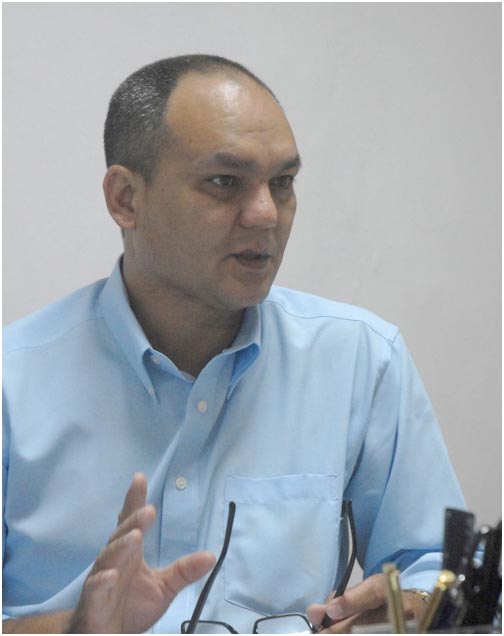
Alfonso Muñoz Chang, Director of the Provincial Lodging Company of Havana, said: “The main thing is to demonstrate that this purpose can be fulfilled.” Photos: Agustín Borrego Torres
A CubaNews translation.
Edited by Walter Lippmann.
With the exception of the very young, the most Cubans remember at least something about the posadas: be it one unforgettable kiss, or the call of the clerk indicating to the lovers that their time was up. After the first position on the island –Carabanchel– established in the late nineteenth century and located in San Miguel and Consulado, in a three-story building with 22 rooms and apartments with independent entrance from the street–dozens of such establishments flourished. The rite was always the same: the man took care of the front desk process while the woman, with her face turned down, stayed at a distance keeping her discretion.
There had been many in the capital but, according to press reports, there were 60 in 1973, and only 30 in 1989. The truth is that despite long lines and the measures of “camouflage” that some developed in order not to be caught by prying eyes, the vast majority of people –myself included– wanted to go to these places because there we made love. “Villa Cándida”, “Dos Palmas”, “11 y 24”, “La Monumental”, “Edén Arriba” and “Edén Abajo”, “La Campiña” and many others, were names repeated furtively most of the time. They were open 24 hours and everyone knew their location, details and signs, although no one talked openly about them.
The posadas not only guaranteed a happy ending to the arrangements of interpersonal relationships, but were also an option for couples faced with the realities that were becoming more acute in the country, namely the lack of housing. No one had any doubts about the convenience of having these establishments, and even tradition demanded to keep them.
But, by the 90’s of last century, in view of very evident economic shortages, it was decided to move the victims of hurricanes –persons who had lost their homes– to many (almost all) of these buildings. The remaining buildings faced the impossibility of receiving adequate maintenance, and suffered much deterioration. Little by little the posadas, or INIT motels [Instituto Nacional de Industria Turistica – today INTUR] as they were called, disappeared from the national scene.
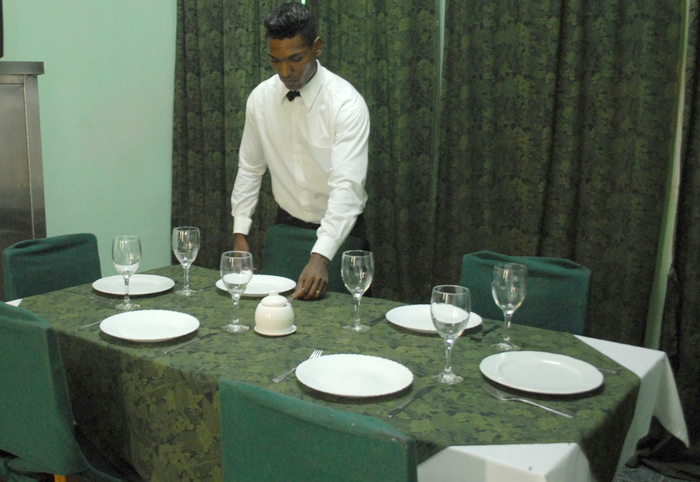
Among the services that the Vento motel will offer is a restaurant; perhaps one of the features that will make it stand out from the rest.
The new service will begin at Vento
The Empresa Provincial de Alojamiento de La Habana [Provincial Lodging Company of Havana] is in charge of an important network of accommodations in 27 different facilities in the capital where both natural and legal persons can today rent a room for a single night. This is the entity in charge of bringing about the reopening of the service the posadas used to offer: that is: lodging by the hour, with a minimum of three hours.
Except from the people who have a private room, own a house, or can pay for a night at a hotel, the rest can only afford hourly rents, parks, dark stairs, the beach or even the Malecón (seawall).
“This is a service that is now in the hands of private persons who provide the service lost with the famous posadas. We believe in the real possibility of bringing it back and developing it,” says Alfonso Muñoz Chang, director of the company. Today the couple that goes to a private lodging must pay the owner at least 5 CUC or its equivalent in CUP [Cuban pesos] –a high figure for the average Cuban– for three hours of amourous privacy.
Generally speaking, the room has air conditioning, a fridge, running cold and hot water and adequate comfort. Of course, that does not include beer at 1.20 CUC or more, drinks or a bottle of rum at sky-high prices, appetizers or some other finger-food to make the moment more pleasant.
Comfort, hygiene and privacy are fundamental in this business, private entrepeneurs say. This will undoubtedly be a challenge for the state-owned service, both in terms of price and comfort.
“We will start with the Vento Motel, on Vento and Santa Catalina. It is a two-story building with 16 rooms with bathrooms and other technical requirements, just a few meters away from where there used to be a well-known posada or Init motel,” said Muñoz Chang.”
“We are also working,” he added, “on other ideas to expand the service. From the old posada network we were also given the famous Monumental, a unit with 20 rooms and car parking space.”
We´ve been working on the project for a while and have already submitted it; but the funding is steep and we could not include it in this year’s plan. “We believe that by 2018 we’ll be able to undertake it. There is the will of the government in the capital to prioritize that emblematic place, which is not crumbling or anything like that, but needs work,” he said.
The Provincial Company director indicated that the strategy foresees –in addition to “Vento” and “La Monumental”– the recovery with equal purposes of “Edén Arriba” and “Edén Abajo”, as well as the “Motel Ocho Vías”, a facility that meets the indispensable requirements for this service. To think about diversifying the options for love is not a crazy idea: it is a reality that affects everyone and should not turn into a luxury item available only to a few.
“We can do many things as a company, but others equally important do not depend on us –he stressed. Our aim is to recover that in-demand service, of great social impact and, undoubtedly, very profitable. “The main thing is to demonstrate that we can fulfill that purpose at the state level, and although we are sure of succeeding, we do not want to create false expectations,” he concluded.
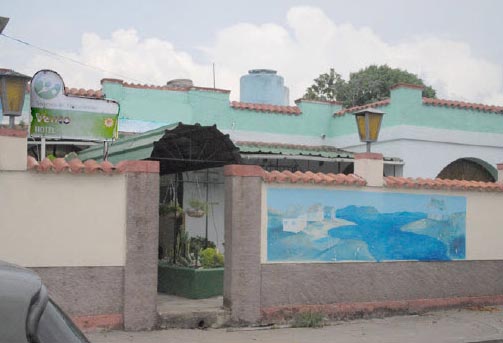
The Vento hotel has a staff of 28 workers, though that could decline after September when by-the-hour service begins. “It will be a very convenient service, plus the city needs it. Each room will have air conditioning, TV, refrigerator and phone, and we will have restaurant and food service. The workers, for their part, are very enthusiastic. After counting their results, they’re sure to increas their salaries, commented Maria Seerling, the current administrator.
[/t]
Fast and Pissed

Fast and Pissed
By Adán Iglesias Toledo
A CubaNews translation.
Edited by Walter Lippmann.
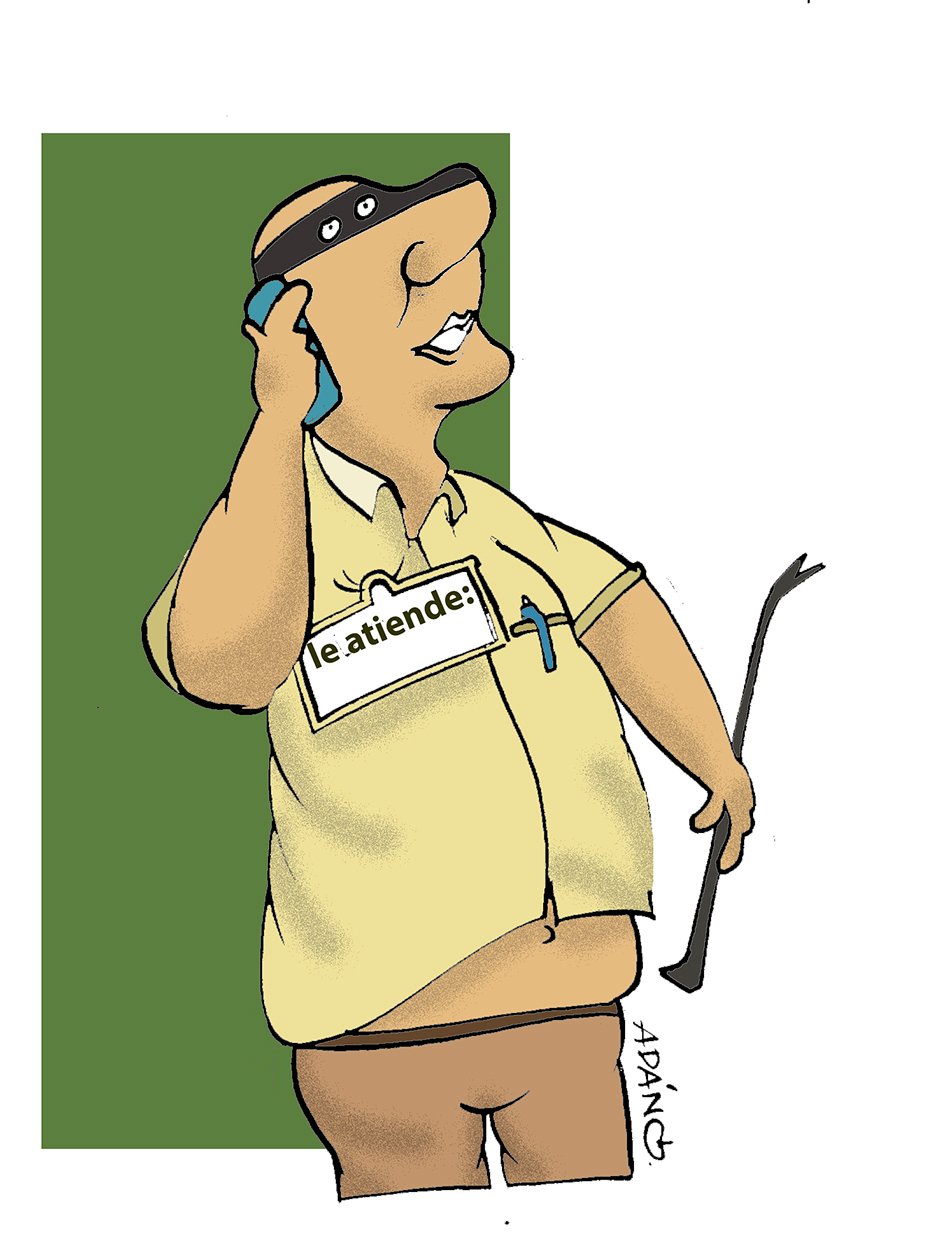
The days-long shooting in various locations of the American film franchise Fast and Furious brimmed with day-to-day scenes of Cuban costumbrismo [“getting used to it-ism]among passers-by and neighbors.
Many streets closed to traffic or temporary detours, countless fly-bys of a filming chopper, the high number of people hired to keep onlookers at bay or silent, and Hollywood’s impressive amount of movie-making equipment… quite a breeding ground for a diversity of comments. Vin Diesel, the famous main character, waved to and greeted many locals with Spanish phrases as he drove around the municipality of El Cerro. It was nobody’s idea, as you can check on YouTube, where this and other videos of the cast and the shooting were posted.
That Central Havana’s El Curita park was closed to the public several days in advance became the talk of the town, but the funny thing was that, if you asked any of the improvised watchdogs what was going on there, the answer was that they were not authorized to say, which would sow all the more speculation and intrigue.
However, it is not my purpose here to question why so many shops and markets near the shooting locations were closed: my comment has to do with another store. In one of those mandatory tours to go around the no-pedestrians-allowed areas, I went into [the department store] Ultra at Galiano Ave. and San Rafael St. to buy a wall stand for a microwave oven. I spoke to a salesperson who was leaning on some boxes of such devices, but when I told him what I wanted, his not unkind reply was:
“Look, I don’t have any; you’d better talk to that other salesman over there.” So I approached the guy, together with the first salesman. They exchanged a few words, and the second one asked me what color I preferred. Anyone would believe that they should be receiving a fast professional service, but, as it turned out, their initial exchange was intended to call a scalper and have him bring the relevant item. Even as you realize what they’re up to, it’s difficult to make up your mind on the spur of the moment. Finding yourself “involved” in such a shady deal made me feel very uncomfortable, not to mention my strong sense of outrage at seeing two employees who are supposed to live on their salary trying to turn my purchase to their own profit instead.
I was so upset at their shamelessness that the solution I chose was to get out of that store right away.
Let’s talk about alcohol

Let’s Talk About Alcohol
Alcoholism is a growing challenge for the countries of the area, which on average consumes more than in the rest of the world.
Author: Lisandra Fariñas Acosta | lisandra@granma.cu
17 January 2016 21:01:31
A CubaNews translation. Edited by Walter Lippmann.

Every 100 seconds, one life is lost.
It is scientifically proven that, as a result of its excessive consumption, alcohol diminishes the average lifespan of the population by more than ten years. This should be sufficient to maintain the commitment to combat this drug, which is legal but constitutes a health problem in Cuba.
Alcoholism, according to the report on the Regional Situation of Alcohol Consumption and Health in the Americas, issued by the Pan American and World Health Organizations, constitute a growing challenge for the countries of the area. Keep in mind that in the Americas region, alcohol consumption is, on average, higher than in the rest of the world.
According to the text, the burden of morbidity (diseases and trauma) is significant, as alcohol consumption contributes to the development of 200 diseases and damages/injuries, including neoplasms, HIV/AIDS infection and various mental disorders.
Cuba is no stranger to this health problem and the statistics do not lie. More than 45% of the population over 15 years old consumes alcoholic beverages, mainly in the age range of 15-44 years old. Meanwhile, the majority of alcohol-dependent people are between 25 and 42 years old, according to research by the National Unit for Health Promotion and Disease Prevention.
It is clear that the tendency towards having the first drink is becoming earlier and earlier in life, without establishing differences by sex. Recent studies suggest that women drink today at the same level as their male counterparts, a trend that complicates this scenario, if we take into account that females, biologically and psychologically, are more vulnerable.
Experts warn that once women are introduced into the field of consumption, they are much more discriminated against and censured. They drink faster and take longer to seek help because of the stigmata with which they carry this scourge, in the midst of an eminently macho society, which delays treatment and hinders rehabilitation.
However, the results of the latest Multiple Indicator Cluster Survey (2014) showed that the proportion of men who drink alcohol is higher than the proportion of women. Alcohol consumption before the age of 15 is more common in men than in women (11% versus 3% respectively).
On the other hand, alcohol consumption is more common in urban areas, equally for both sexes, while in women alcohol consumption is more common in the capital. The highest percentage of alcoholic beverage intake is identified in the center of the country with 53%. Women in higher education consume more alcohol (24%) than those in lower education. In men, the highest percentage of consumers is among those who have not studied or who have only reached the primary level, according to the survey.
It is imperative for Cuban society to know where the gaps that condition this situation are, as well as the cultural and imitative patterns that are repeated within households. There are many places today that encourage irresponsible consumption of alcohol and it is not difficult to access drinks, although the law prohibits the sale of these products, in addition to tobacco, to minors under the age of 18.
“The bottle” often ends up in the hands of the teenager, in flagrant violation of his right to preserve his health. In addition, paradoxically and contrary to what is legally stipulated in almost all countries, in our environment it is frequent to travel through public spaces bottle in hand, and nobody talks about having a Dry Law, but about responsible consumption that allows avoiding risky behavior.
Professor Ricardo González Menéndez, a renowned expert on addictions, warns us well in his article La atención integral al alcoholismo: experiencia cubana [Comprehensive Attention to Alcoholism: Cuban Experience]. He reflects on how “although alcohol and alcoholism are currently considered as the drug and drug addiction of greatest socioeconomic and human significance, little progress has been made with regard to the classic global social attitude of underestimating it as a health problem when compared to other drug addictions”.
However, the negative impact it has on all areas of the life of the individual and those around him or her, as well as its gateway drug status, make alcoholism not only a health but also a social problem.
Around 75% of the world’s drug addicts do not receive professional help. However, Cuba’s health system has, on the other hand, provided ways to confront this problem at all levels of healthcare.
We start from an integrated network of services and various forms of care for the alcoholic patient, ranging from primary care in the community to hospital services specializing in addictions. Community Mental Health Centers or polyclinic teams are essential links in the rehabilitation of patients suffering from this and other addictions.
Jesus Christ, Revolutionary
Jesus Christ, Revolutionary
Frei Betto: Now, I’d like to hear your views on somebody else, somebody much more important, much more universal, and also much more discussed and much more loved than the pope. What are your views on Jesus Christ the person?
Fidel Castro: Well, I’ve already told you the story of my education and my contacts with religion, with the church. Jesus Christ was one of the most familiar names to me, practically ever since I can remember — at home, at school, and throughout my childhood and adolescence. Since then, in my revolutionary life — even though, as I told you, I never really acquired religious faith — all my efforts, my attention, and my life have been devoted to the development of a political faith, which l reached through my own convictions. I couldn’t really develop a religious concept on my own, but I did develop political and revolutionary convictions in that way, and I never saw any contradiction in the political and revolutionary sphere between the ideas I upheld and the idea of that symbol, that extraordinary figure that had been so familiar to me ever since I could remember. Rather, I concentrated on the revolutionary aspects of Christian doctrine and Christ’s thinking. Throughout the years, I have had several opportunities to express the coherence that exists between Christian and revolutionary thought.
“I’ve cited many examples; sometimes I’ve used Christ’s words: “It is easier for a camel to go through the eye of a needle than for a rich man to enter the kingdom of God.” I’ve heard various people, including a priest, say that Christ wasn’t referring to the small needle we know now, because it’s impossible for a camel to go through the eye of that kind of needle. Rather, it meant something else; it had to be interpreted differently.
Frei Betto: Some biblical scholars take, it to mean the narrow corners in Jerusalem, Palestine, and the heart of Beirut, for it was very difficult for the camels to turn those corners. Why doesn’t anybody question how difficult it is for a rich man to enter the kingdom of heaven? That’s unquestionable. Comandante, from the theological point of view, it doesn’t mean that Jesus discriminated against the rich; it means that Jesus opted for the poor. That is, in a society characterized by social inequalities, God decided to assume the likeness of Jesus; he could have been born in Rome, to a family of emperors; he could have been born to a Jewish landowner’s family; he could have been born to the middle strata of parishioners. Instead, he chose to be born among the poor, as the son of a carpenter — one who certainly worked on the construction of the Brasilia of his time, the city of Tiberias, built as a tribute to Emperor Tiberius Caesar in whose reign Jesus Lived. It’s interesting that Tiberias is on the banks of the Lake of Gennesaret, where Jesus spent most of his life and carried out most of his activities. In the Gospels, he doesn’t visit that city even once.
So, what do we say? We say that Jesus unconditionally opted for the poor. He spoke to everyone, both rich and poor, but from a specific social stand, from the social stand of the interests of the poor. He didn’t speak in a neutral, universalist, abstract way; rather, he reflected the interests of the oppressed strata of the times. If a rich man wanted to have a place next to Jesus, he had to opt for the poor. There isn’t a single example in all the Gospels of Jesus’ welcoming a rich man beside him without first making him commit himself to help the poor.
I can cite three examples: first, that of a rich young man who was a saint because he observed all the Commandments, but in the end Jesus said that the man had to do one more thing: go and sell what he had, and give to the poor before he could follow him. I believe that many priests today would say, “Look, If you observe all the Commandments, come with us; stay here next to us; and in time you’ll improve!” But since Jesus was a little more radical than we are, he told the man, “You go honor your commitment to the poor and then come.”
The second example is that of the rich man whose home Jesus visited. Jesus had no prejudices but he was consistent so he went to Zacchaeus’s home not to praise his ceramics, which may have come from Persia, or his Egyptian figurines, but rather to tell him that he was a thief because he’d stolen from the poor. And Zacchaeus, who wanted to be at peace with him, said, “Behold, Lord, the half of my goods I give to the poor; and if I have defrauded anyone of anything, I restore it fourfold.” That is, the practice of justice was the basic requirement for following Jesus.
The third example is the preaching of John the Baptist, who prepared for Jesus’ coming. His preaching began with the practice of justice. The people who wanted to be converted didn’t ask what they should believe; they asked what they should do and John replied, “He who has two coats, let him share with him who has none; and he who has food, let him do likewise.”
The universality of Jesus’ preaching must also be explained; it is a universality that derives from an option and a very specific social and political stand: the cause of the poor.
Fidel Castro: I’ve been listening to you with great interest, because there’s a lot of substance in what you’ve said, However, I could make a mathematical objection: a rich man could never give back four times what he’d stolen, because everything a rich man has must have been stolen. If he didn’t steal it himself, it must have been stolen by his parents or grandparents, so it’s impossible — if everything he has is stolen — for him to return fourfold what he’s stolen, for he’d probably have to steal four times as much again to keep that promise.
Frei Betto: You’re repeating something that St. Ambrose said in the early centuries.
Fidel Castro: I’m glad to have coincided with him. So what do I think? It may be a bad translation of the Bible; maybe the translators are to blame, because they didn’t take into account the meaning of the eye of a needle, I realize that many of the phrases in the Bible are related to that environment, to the society and customs of the times; but I don’t know how this could be proved in this case. Anyway, somebody well versed in religion, somebody well versed in languages, must have interpreted, with quite some grounds, that it was the eye of the needle that everybody knows about in our language, because we don’t know of any other, for the people in Spanish-speaking countries don’t knew the first thing about camels, even though we do have an idea of what camels are.
In any case I liked the interpretation that the translators gave to that phrase, as I understood it, and I also believe the interpretation is absolutely in keeping and is consistent with all the other things that Christ preached. First of all, as you said, Christ didn’t choose the rich to preach the doctrine; he chose 12 poor and ignorant workers — that is, he chose the proletariat of the times or modest self-employed workers, some of whom were fishermen. They were poor people, very poor, without exception, as you said.
At times I’ve referred to Christ’s miracles and have said, “Well, Christ multiplied the fish and loaves to feed the people. That is precisely what we want to do with the revolution and socialism: multiply the fish and the loaves to feed the people; multiply the schools, teachers, hospitals, and doctors; multiply the factories, the fields under cultivation, and the jobs; multiply industrial and agricultural productivity; and multiply the research centers and the number of scientific research projects for the same purpose.” At times I’ve referred to the parable of the rich man who employed several workers: he paid some of them one denarius for a full day’s work; to others he paid one denarius for half a day’s work; and to yet others he paid one denarius for half an afternoon’s work. The parable implies a criticism of those who didn’t agree with that distribution. I believe that it is precisely a communist formula; it goes beyond what we say in socialism, because in socialism each should be paid according to his capacity and work, while the communist formula is to give to each according to his needs. To pay a denarius to each one who worked that day implies a distribution more in keeping with needs, a typically communist formula.
Also, I believe that many of the passages of the preachings of Christ, such as the Sermon on the Mount, cannot be given any interpretation other than what you call the option for the poor. When Christ said, “Blessed are the poor in spirit, for theirs is the kingdom of heaven. Blessed are those who mourn, for they shall be comforted. Blessed are the meek, for they shall inherit the earth. Blessed are those who hunger and thirst for righteousness, for they shall be satisfied,” it is obvious that Christ didn’t offer the kingdom of heaven to the rich; he really offered it to the poor, and I don’t think that the preaching of Christ is also a case of mistaken translation or interpretation. believe that Karl Marx could have subscribed to the Sermon on the Mount.
Frei Betto: In St. Luke’s version, not only are the poor blessed, but the rich are damned.
Fidel Castro: I don’t know if the phrase is in any of the versions of that preaching. You say that it’s St. Luke’s version. The one I recall doesn’t damn the rich.
Frei Betto: That’s the St. Matthew one, which is better known.
Fidel Castro: Maybe that’s the one that was more convenient at the time, to bring us up in a more conservative spirit. You said something profound: that the difficulty lies in understanding how a rich man can enter the kingdom of heaven, if you consider many of the things that go with the mentality of the rich: insensitivity, selfishness, lack of solidarity, and even the sins of the rich in all spheres. I really believe that what a rich man had to do to be a good Christian and reach the kingdom of heaven was expressed clearly. It was stated repeatedly in Christ’s preachings.
You should also take into consideration that we read many books of history and literature – some written by laymen and others by clergymen – that reflected the martyrdom of the Christians in the early centuries. Everybody’s had the opportunity to learn about those events, and I think that one of the things the church felt most proud of during the years when I was a student – I remember this clearly was the martyrology of the early years and throughout the history of the church.
SCANNED FROM:
Fidel & Religion: Conversations with Frei Betto on Marxism & Liberation Theology; Castro Talks on Religion and Revolution with Frei Betto. Introduction by Harvey Cox. Simon and Schuster (1987), pp. 267-271
Subscribe to Blog via Email
| M | T | W | T | F | S | S |
|---|---|---|---|---|---|---|
| 1 | 2 | 3 | 4 | |||
| 5 | 6 | 7 | 8 | 9 | 10 | 11 |
| 12 | 13 | 14 | 15 | 16 | 17 | 18 |
| 19 | 20 | 21 | 22 | 23 | 24 | 25 |
| 26 | 27 | 28 | 29 | 30 | 31 | |


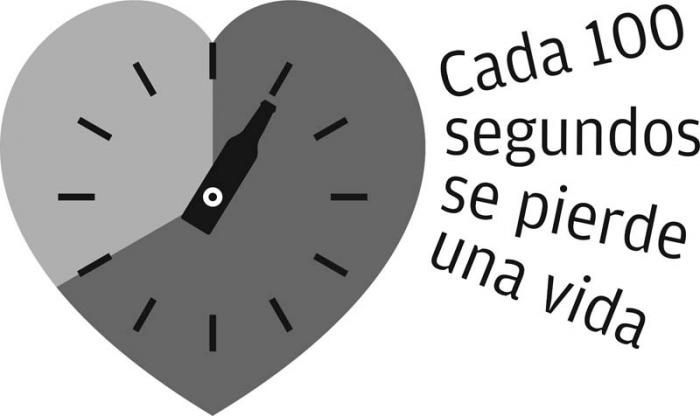

You must be logged in to post a comment.